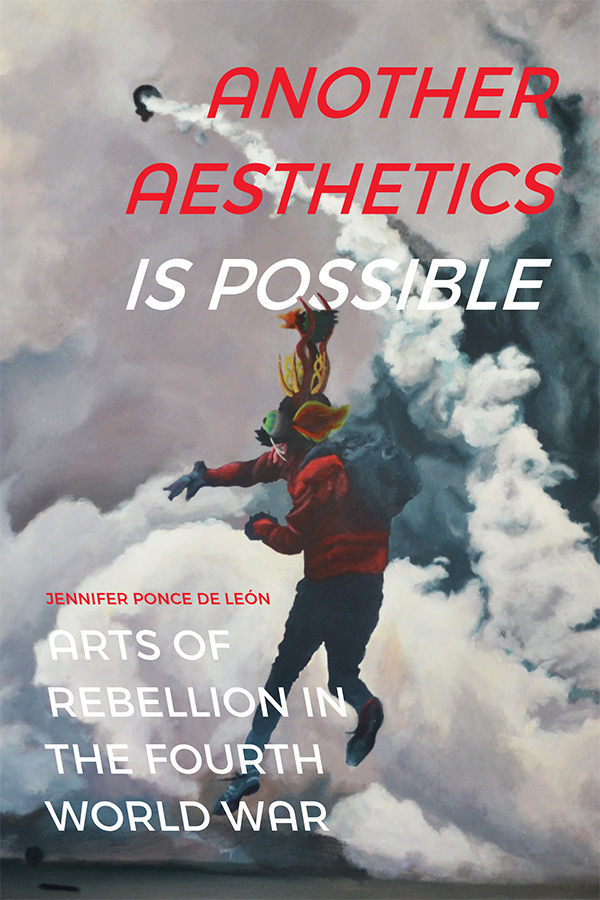
Another Aesthetics is Possible: Arts of rebellion in the Fourth World War (2021) Jennifer Ponce de León
Ponce de León focuses on socially engaged art practices in Argentina, Mexico, and the United States, uncovering the relationships between these experimental practices and political movments and popular uprisings that have resisted neoliberal capitalism and its violence. She begins with the marxist revolutionary affirmation that another world is possible, and the Zapista assertion that los de abajo y a la izquierda (those from below and on the Left) can create a world of justice, freedom and democracy for all . Central to this argument is an expansive reading of aesthetics , understood as the “socially forged sensory composition of a world” that is concerned with the social forging of perception, rather than only to those practices and productions associated with fine art . As aesthetic practices and productions shape how we perceive and understand the world, they are a crucial site of struggle in creating and defending another social reality. She builds a materialist understanding of aesthetics that is not based upon the specificity of what is designated as “art” but on the composition of a mental and perceptual sensorium. Politics and aesthetics are, in this reading, entangled engaged practices: she rejects the idea that art practice can be considered outside of its social context or that the aesthetic experience of what is designated as ‘art’ differs from other aesthetic experiences.
This argument is supported through analysis of a range of activist socially engaged art practices ( Fran Ilich, Diego de la Vega Coop, Grupo de Arte Callaejero, Etcétera) showing how artists and communities of which they are a part “articulate alternative visions of artistic labor, where its value can be understood in regard to its creative contributions to struggles for emancipation and equality. ” In these socially engaged art practices the social role of the artist exceeds the production of artworks, rather the artistic labour is part of collective social struggle and open up “the very idea of what art is and what it can do”. p148
Jennifer Ponce de León’s articulation of an other aesthetics demonstrates the importance of moving beyond an aesthetics tied to the production and appreciation of art and design objects to an expanded reading of aesthetics as always already political.
Conor McGarrigle
TU Dublin
Ponce de León, J. (2021). Another aesthetics is possible: Arts of rebellion in the Fourth World War.
Duke University Press.
